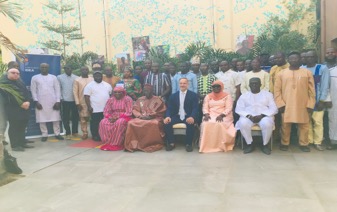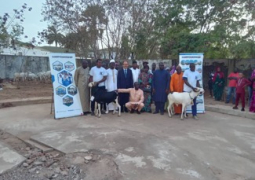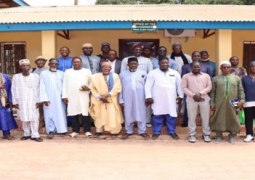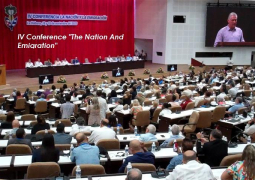
The day’s event was aimed at supporting and harnessing participant’s skills and knowledge in engaging with all related budgetary processes.
At the opening ceremony, Mr Raphaël Brigandi, Political Officer, chargé d’affaires of the EU in The Gambia, reminded that National Assembly is endowed not only with the essential role to initiate and vote laws but also to control the action of the government.
“Central to the National Assembly’s role is the crafting and scrutiny of the national budget. The budget reflects decisions on how to tax and spend, how to borrow and lend, and how to consume and invest.”
He reminded that public policies a budgetary allocation and actual resources to be implemented.
“Accordingly, the share of public spending per sector reflects the importance of all respective sectors in a State’s political agenda, in a State’s actual political priorities. In that sense, the budget is the ultimate strategic tool of a State, which is why its examination by the elected members of the Parliament is so instrumental.”
“The training programme aims to support your skills and knowledge in engaging with all related budgetary processes. We hope that this training will be useful and fruitful for all of you.”
For his part, Fabakary Tombong Jatta, Speaker of the National Assembly, said the National Assembly has a unique role and responsibility in the budget process; being the body mandated to enact the Appropriation Bill.
“We have to interrogate this budget to see to what extent it can deliver on the development challenges of our times. We have to see how it can help put a lasting dent on poverty; how it will contribute towards creating opportunities for our youths and make them feel that the ‘back way’ is not an option; how it contributes towards improving health and education outcomes; how it deals with issues of equity and inclusion.” he said.
Speaker Jatta reminded that the budgets affect all of us as businesses analyse budget policy in order to make investment decisions that impact growth and employment.
“As citizens, we depend on the State to provide crucial services and infrastructure. Whether new roads will be built, whether our children will have schools to go to and whether clinics can adequately cater for the health care needs of the population depends, to a large extent, on the way government raises revenues and allocates money to meet various competing and sometimes conflicting needs.”
Therefore, he acknowledged that as the representative institutions of the people, it “falls on us to ensure that the budget optimally matches the needs of our people with available resources and as well establish checks and balances that are crucial for transparent and accountable government and ensuring efficient delivery of public services.”
Mrs Jainaba Faye, head of Country Office, International IDEA, expressed optimism that by the end of the project, they will have a National Assembly well-equipped and capacitated, strengthened to exercise its legislative, oversight and representative functions being particularly inclusive, responsive and accountable to all citizens.





